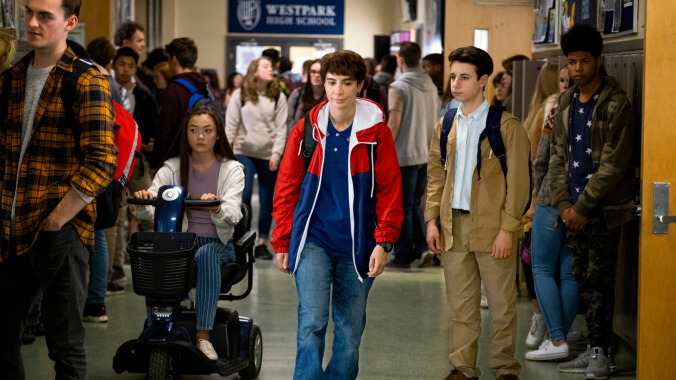Chad gradually rises above its cringe comedy with surprising earnestness

The new comedy Chad has been a long time coming. Created by and starring Nasim Pedrad, the show has been in development since 2016, and has moved networks from Fox to TBS. Pedrad has not only written and directed the show; she also takes on the challenge of playing the eponymous 14-year-old boy who legally changed his name from Ferydoon to Chad Amani to sound more American. He only has one goal as high school starts: to befriend the crowd he perceives as “cool.” It’s a familiar narrative, but Chad, who is Iranian American, has to additionally navigate his cultural identity along with his teenage experiences, although he often chooses not to do so. Chad puts his Iranian heritage on the back burner as a way to fit in, even though he’s the only one who views it as a hindrance. After some unsteady initial episodes, the series manages to explore some heartfelt narratives through its extremely uncomfortable humor.
Chad recalls Hulu’s Pen15—which sees series creators Maya Erskine and Anna Konkle play teens as well—in the way it induces full-body shudders with its cringe comedy and reflections of the awkwardness of school life. The character of Chad is actually more akin to The Office’s Michael Scott. In a sincere effort to be endearing, Chad ends up cracking inappropriate jokes, disregards—either unintentionally or willfully—other people’s feelings, and inserts himself into other people’s conversations. Chad also lies about everything from losing his virginity to obtaining a pair of Jordans. Pedrad’s vulnerable performance softens the blow of Chad’s narcissism, but despite the show’s creative ideas, it struggles to offset Chad’s vain personality with moments of resolution or growth.
 Keep scrolling for more great stories.
Keep scrolling for more great stories.
